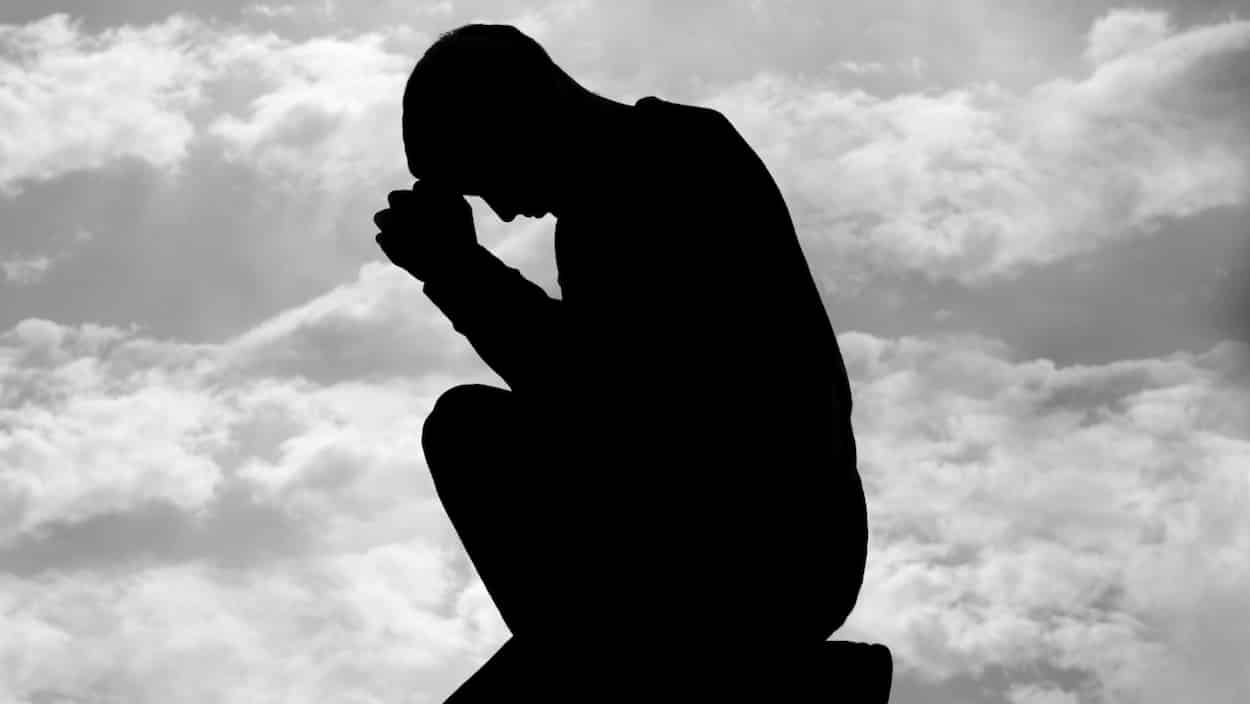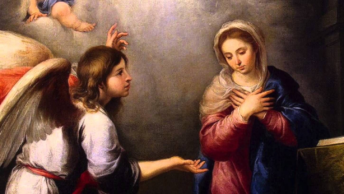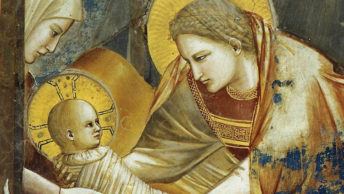Once there was a man who considered himself a bitter enemy of religion. He had been raised as a Christian, and was well-versed in the Bible; however, in his college years he decided that religion was for hypocrites and weaklings. He didn’t need it, and had nothing but scorn for people who took it seriously. This included his wife. Because he loved her dearly, he didn’t attack her directly, but he constantly made fun of her religious beliefs and practices. One Sunday morning, as she prepared to leave for church, he went out to cut some firewood. Not wanting to cut down a healthy tree, he looked around until he found one that was dead and barren, its branches empty of leaves. “I’ll cut that one down,” he said to himself; “it’s dead and dry, and fit only to burn.” Even as he said this, a terrible thought occurred to him: was he also a dead tree, fit only to be burned? He tried to get rid of the thought, but in vain; every time he swung the ax, another accusing memory came to mind: his contempt for the Church, the lame excuses he had for missing Mass, the pain he caused his wife by belittling her religious practices, and so on. Finally he could take it no longer; filled with remorse, he hurried home, quickly changed his clothes, and hastened to follow his wife to church (Msgr. Arthur Tonne, Stories for Sermons, Vol. 5, #47).
If Christ’s grace flows through us, we are truly alive—but if we knowingly choose a life of sin, we are spiritually dead, and fit only for eternal fire. The Church confronts us with this unpleasant truth early in the Advent season not to frighten or discourage us, but to remind us of the overriding importance of living as true followers of Jesus, and of witnessing and proclaiming the good news of His mercy in a sinful and rebellious world. A day of judgment will sooner or later come; it will be either a day of doom and despair, or a day of salvation and blessing—and that’s being determined right now by our values, choices, and actions.
I don’t think St. John the Baptist ever took a Dale Carnegie course or read How to Win Friends and Influence People; he wasn’t interested in winning popularity contests, making friends, or being politically correct. John was totally committed to the truth—even to the point of criticizing religious and political leaders for their hypocrisy, and warning sinners that unless they repented, they could expect to be burned in the unquenchable fires of hell. In giving this uncompromising message, he was truly a forerunner of Christ, for the prophet Isaiah (11:1-10) states that the coming messiah would judge not by appearance or hearsay, but with absolute integrity, ruling on behalf of the poor and ruthlessly striking down the wicked. Our gracious and loving God is capable of intense anger at those, especially religious leaders, who harm or abuse His lowly and defenseless children; at the same time, He shows unimaginable tenderness and mercy toward those who treat others—especially the poor and suffering—with respect and compassion. St. John the Baptist’s point was that God never does things by half-measures, and therefore our efforts to worship and serve Him must also be wholehearted. This is what St. Paul, in his Letter to the Romans (15:4-9) meant when he sayid that we must rely upon God for endurance and encouragement, for only in this way will we be able to give true glory to our Heavenly Father while living in harmony with those around us.
There was a wealthy and important man in Japan who wanted to become part of the imperial orchestra, so as to have the honor of performing before the emperor; the problem was that he couldn’t play a musical instrument. Because of his influence, he forced the conductor to let him sit in the second row of the orchestra, hold a flute to his mouth, pucker his lips, and move his fingers over the instrument, while pretending to play. For two years he carried off this deception, without ever actually playing a note, but then a new conductor took over the orchestra and insisted each musician play for him individually—and, to the man’s great shame, he was exposed as a fake. This, by the way, is the origin of the term “to face the music” (Roy B. Zuck, The Speaker’s Quote Book, p. 206), and it’s something everyone will sooner or later experience: our words and deeds will be measured, and the genuineness of our faith and the degree of our commitment to Christ will be revealed.
These weeks of Advent are a good time for us to ask ourselves some rather important questions. For instance, when we attend Mass on Christmas Eve or Christmas Day, will it be as part of our commitment to worshipping God each week, or just a way of feeling religious without any real commitment to our faith? When we look around us during Christmas Mass at all the Christmas-and-Easter Catholics, will it be with a genuine and compassionate desire for their conversion and salvation, or a smug sense of superiority because we, unlike them, attend church every week? Do we give a greater allegiance to the values of our culture than to the teachings of our Church? Are we letting the hustle and bustle of the Christmas shopping season crowd out the deeper and more important spiritual and religious meaning of Advent? Are we so busy shopping, socializing, and preparing for Christmas festivities that we don’t take time to pray and be with the One Whose birth we’re supposedly celebrating?
St. John the Baptist warns us rather bluntly that the messiah—Whom we know to be Jesus—will “clear His threshing floor and gather His wheat into His barn, but the chaff He will burn with unquenchable fire.” As followers of Christ, we have every reason to face the future with confidence, but absolutely no reason to go forward in complacency; all our thoughts, motives, values, choices, and actions will either testify for us, or against us, at the moment of judgment. This Advent season is an opportunity for us to renew our commitment to following Jesus, and a challenge to intensify our prayers and sacrifices for those who have so far rejected Him. Each one of us has a role in preparing the way of the Lord and making straight His paths—and if we try to do this with integrity and humility, our future encounter with Him will truly be reason to rejoice.








